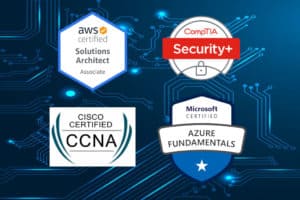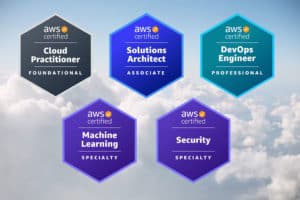Thirty isn’t just a new chapter; it’s blockbuster time for career reinventions. Ready to pivot to the number-crunching world of accounting but worried you’ve missed the financial filing deadline?
This blog post promises practical steps and insights for those ready to turn the page at 30 and jumpstart a career in accounting.
Quick Takeaways:
- Research and attain the necessary education, such as a bachelor’s degree in accounting and consider CPA certification to enhance job prospects.
- Gain practical experience through internships, volunteering, or entry-level jobs and network actively within the accounting community.
- Embrace accounting technology by mastering software such as QuickBooks and data analytics tools to offer valuable skills to employers.
Is Accounting a Good Fit for You?
Accounting can be a solid career choice, but it’s not for everyone. Before diving in, it’s wise to do a bit of introspection. Are you someone who prides themselves on meticulous attention to detail? Accounting is a field where precision is key, and a small error can snowball into major financial discrepancies.
Next, consider your analytical skills. Do you enjoy logical thinking and problem-solving? As an accountant, you’ll often delve into complex data and need to make sense of it, typically under tight deadlines. This leads us to another vital trait: stress management. The ability to maintain your cool when the numbers don’t add up is an absolute must.
Finally, think about your comfort level with numbers. While a love for math isn’t a strict requirement, being at ease with numerical data and basic math skills will make your life much easier.
What Education Will You Need?
Starting an accounting career usually means getting the right education under your belt. A bachelor’s degree in accounting or a related field is typically the entry point for many accounting positions. Quality really matters when it comes to your education, so prioritize schools that are accredited by the Association to Advance Collegiate Schools of Business (AACSB), as this is a hallmark of excellence in business education.
But wait, there’s more! If you aim to become a Certified Public Accountant (CPA), you’ll need to meet the specific educational requirements to sit for the CPA exam, including a certain number of credit hours, which may be more than a standard bachelor’s degree offers.
Don’t overlook the value of online courses and self-study resources. Websites like Coursera or Udemy offer courses that can introduce you to accounting principles or advanced topics. Self-study can show initiative and provide a foundation, but remember that accreditation and formal education will typically be required for career progression.
For a unique edge, look into specialized accounting software certifications, such as QuickBooks or Microsoft Dynamics. Being proficient with industry-standard software can make you stand out and is often overlooked in traditional educational pathways.
How Can You Gain Experience?
Real-world experience is the golden ticket in the accounting profession. If you’re starting later than some of your younger counterparts, you’ll need to be strategic about gaining experience swiftly. Internships, for example, aren’t just for college kids. Many firms embrace interns at all stages of their careers, providing a vital inroad into the industry.
Another avenue is volunteering your budding accounting services to non-profits or small community organizations. Not only is this an excellent way to practice and improve your skills, but it also demonstrates your commitment and can be a strong talking point in job interviews.
For direct entry into the field, eye those entry-level accounting positions. Roles like accounts payable clerk or assistant auditor can get your foot in the door. While you’re working your way up, though, it’s essential to weave a web of professional connections. Networking isn’t just a buzzword; it’s how you find out about opportunities before they hit the open market.
Joining professional accounting organizations like the American Institute of CPAs (AICPA) offers networking events, continuing education resources, and industry insights. These organizations often have local chapters, and getting involved can connect you to a community of peers and mentors who can guide you on your journey.
Remember, making a career switch to accounting at 30 is more than feasible; it’s a challenge that could lead to a rewarding future. The road isn’t short, and the learning curve can be steep, but with the right approach, your calculator is set for success.
What Certifications Can Propel Your Career?
Starting an accounting career at 30 can feel like a daunting step. But hold on, it’s not just about crunching numbers; it’s also about flashing the right credentials. Certifications are the spice that can really jazz up your resume.
Certified Public Accountant (CPA): The CPA is the gold standard in the accounting world. Grabbing this certification can be a real game-changer. It opens doors to prestigious roles, like being a financial analyst or a tax consultant. In fact, in the US, the CPA credential is a must if you’re looking to advance in public accounting.
Certified Management Accountant (CMA): If you’re keen on the management side of things, becoming a CMA could be your ticket. This focuses on management accounting and corporate finance, perfect for those who dream of a corner office and a leadership role.
Specialized Certifications: If you’ve got a niche in mind, specialized certifications can really help you stand out. Say you’re keen on fraud? The Certified Fraud Examiner (CFE) credential could be up your alley. Or is it the environment and sustainability that gets you excited? Then look into the Certified Sustainability Accountant qualification.
Each certificate is like a key, unlocking different doors in the vast mansion of an accounting career. They can boost your job prospects, often commanding higher salaries and giving you a leg up for those coveted promotions.
How Do You Transition Into the Accounting Job Market?
So, you’ve decided to take the plunge into accounting. But, wait, how do you actually dive into this new pool?
Networking: Let’s face it, who you know matters as much as what you know. Start connecting—whether it’s through professional associations or LinkedIn. Attend industry events, reach out to alumni from your college, or join local accounting groups.
Tailored Resumes and Cover Letters: When drafting your resume, make sure it speaks ‘accounting’. Highlight any relevant experience, even if it’s not directly related. For instance, did you manage budgets in a project management role? That’s golden. Tailor your cover letter to show your passion for numbers and keen detail orientation.
Leveraging Previous Experience: Think outside the traditional experience box. Any analytical or data management skills from previous jobs can be a big plus. Show potential employers how those skills translate into accounting expertise.
How Can Technology Give You an Edge?
In today’s world, accounting and technology are joined at the hip. Getting cozy with the latest accounting software and tools isn’t just recommended, it’s necessary. Here’s a pro tip — proficiency in cloud-based accounting solutions like QuickBooks Online or Xero can truly make your resume pop. 🌟
Learn how to generate financial reports, automate billing, and manage payroll using these tools. Many companies look for candidates familiar with data analytics tools such as Tableau or Microsoft Power BI as well.
And here’s a nugget that’s often missed: Don’t just learn the tools, understand the process automation behind them. Many employers aren’t just looking for someone who can use the tech; they’re looking for someone who can streamline financial processes through these technologies, saving time and money.
By really digging into how technology can optimize accounting, you’re not just showing off a skill — you’re providing direct value to your potential employer. And that, dear reader, can set you apart in a crowded market.
Embracing technology, flaunting certifications, and cannily transitioning your previous experience into your new accounting career are all steps on the ladder to success. Climb with confidence, and before you know it, you’ll be more than just a number in the accounting world.





